Delicious fruits with great taste are what make strawberry and raspberry plants to be widely grown. They are popular among both individual gardeners and those who do it for commercial purposes. Good nutrition is required for these plants to grow well and bear fruits. Chicken manure is one source of nutrients that can be used for this purpose. However, there are factors that you have to consider before using chicken manure as a fertilizer, which include its composition, application method, and how it affects soil health, if any. The author of this article dwells on the advantages and disadvantages of using chicken droppings on strawberries and raspberries by providing in-depth information based on agricultural best practices and scientific findings. Knowing these aspects enables farmers to make wise choices that would boost their berry yields sustainably.
Why Should You Use Chicken Manure in Your Garden?
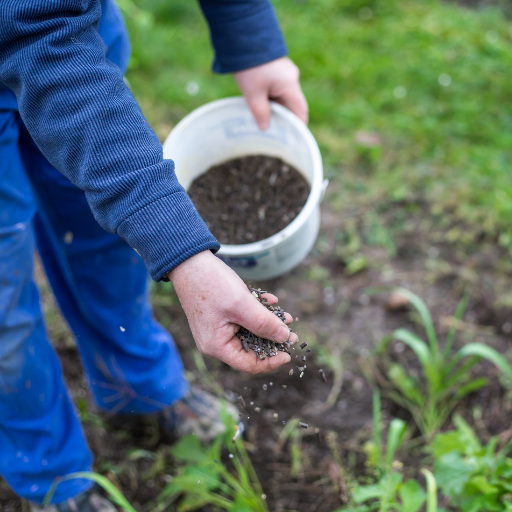
Due to the presence of high quantities of essential nutrients like nitrogen, phosphorous, and potassium, chicken manure is regarded as an excellent organic fertilizer. The robust growth of strawberry and raspberry plants calls for these nutrients. Nitrogen is responsible for the overall healthy growth of stems and leaves, while phosphorus supports fruiting and root formation, as potassium improves plant strength against diseases, among others. The organic matter in chicken manure improves soil structure, enhances microbial activity, and boosts water retention, creating a good agricultural production environment. Nevertheless, proper composting or aging should be done to avoid problems such as pathogen transmission and burning plants with excess nitrogen.
What role does the chicken manure play in the soil structure?
Chicken manure greatly contributes to improving soil structure through the addition of organic matter that facilitates soil aggregation and porosity. This improved soil structure supports root development while increasing soil’s water retention capacity and nutrient carrying capacity, thus ensuring that plants always get the required materials. Besides this, chicken manure’s organic matter acts as food for beneficial bacteria that further decompose organic matter, increasing fertility and stability. All these changes simply make more fertile ground where strawberries and raspberries can be grown faster.
Does chicken droppings have any effects on strawberries?
Yes they do. Chicken droppings are usually rich in nitrogen, phosphorus, and potassium (N-P-K). These three elements in the chicken manure are 1.1-1.8% N, 0.8-1.2% P, 0.5-0.8% K, respectively. Nitrogen is important for promoting vegetative growth, including leaf and stem development. Phosphorus ensures that roots grow well because they nourish fruits producing plants like strawberries and raspberries with suitable environments for them to grow properly. Potassium contributes to a plant’s general healthiness, leading to improved resistance against pathogens and, thus, vigorous growth. When properly composted, chicken manure can be an excellent organic fertilizer that supplies these nutrients in forms that are easily usable by plants while also enhancing soil structure and fertility.
What are the risks of applying fresh dung?
Using fresh dung has some disadvantages, such as high ammonia levels, which may cause the burning of plants, and the presence of E. coli and Salmonella bacteria. These microorganisms cause crop contamination making them dangerous for human consumption. Another problem is the fact that it usually contains an unbalanced nutrient composition, which could lead to excessive buildup of certain nutrients like nitrogen, resulting in stronger, more productive plants and nitrate leaching into groundwater. Therefore, before using, one should consider composting well to avoid such dangers, hence maintaining safety in terms of a balanced nutrient supply for crops.
How to Properly Fertilize Strawberries with Chicken Manure?
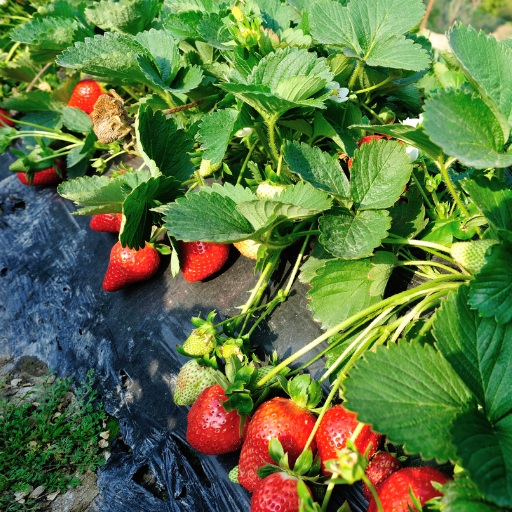
To properly fertilize strawberries with chicken manure, it’s important to ensure it is well-composted. Fresh manure can harm plant life because of a high nitrogen content and possible presence of pathogens. The composted chicken droppings should be incorporated into the soil at least several weeks before planting (using about 1-2 inches of composted dung per square foot). This should be thoroughly mixed into the top 6-8 inches of soil. Using this as a guide will ensure you use enough or too little for your strawberries throughout their growth stages while growing.
Throughout the growing period, more nutrients can be provided by adding compost tea made from chicken manure. Be careful not to over-fertilize because an excessive supply of nitrogen can lead to a lot of foliage but little fruit. Fertilizer needs have to be adjusted based on regular observations of soil nutrient levels and plant health.
What is the best time to apply chicken manure to strawberry plants?
Chicken manure should be applied during early spring before flowering starts in strawberry plants. This time, it releases its nutrients slowly as the main growth stages begin later in their lives. Experts recommend that for protection against pathogen attack or burn from nitrogen, composted chicken droppings be incorporated into soil four to six weeks before seeding. In some cases during the summer season when side-dressing is possible, diluted compost tea or light one may be used on fruiting plants; however, care has to be taken not to disrupt root systems and overdo nutrient application.
Step-by-step guide for applying organic chicken manure fertilizer to strawberry beds
- Preparation of Manure: Ensure that your chicken waste is well-composed. When it comes in fresh form, it could negatively affect crops since it contains excess nitrogen, which can harbor pathogens. Composting offers protection and ensures that nutrients are easily released to plants.
- Timing of Application: Composted chicken manure is best applied in the early spring, at least 4-6 weeks before planting strawberry beds. Thus, these nutrients can be properly absorbed into the soil and supplied to the plants when needed.
- Soil Integration: Spread composted chicken droppings about 1-2 inches thick over your planting area. Then, mix this well with the top 6-8 inches of soil. Proper incorporation guarantees equal nutrients and reduces the possibility of burning off nutrient supply.
- Planting Follow-up: Immediately after mixing in the manure, give the soil another week before you plant your strawberries. A breeding period must also be considered to avoid any nitrogen burn or pathogen transporting routes.
- Supplemental Feeding: Throughout this growing season, check for signs of ill health and nutrient levels on both plants and soil. Light side dressing or a diluted compost tea prepared from chicken droppings may be applied as soon as fruits start appearing on some varieties; however, ensure that roots remain undisturbed and there is no excess feeding because excessive nutrients harm crops.
- Regular Monitoring: Monitor soil nutrient levels throughout plant growth stages until harvesting time approaches. Adjust fertilizer use accordingly based on different findings made during continuous monitoring concerning soil nutritional needs for optimal crop development and fruiting potentialities. Regularly checking soils helps ascertain their productivity levels relating to their nutrient composition.
How much chicken manure should you use to fertilize your strawberries?
The amount of chicken manure required to fertilize strawberries relies upon several aspects such as the nutrient content of the manure and the current state of soil. Generally, 1-2 inches of composted chicken manure is applied uniformly on strawberry beds. Around 15-20 pounds per 100 square feet translates to approximately 1000 pounds per acre for a normal commercial field. To prevent nutrient burn, it is necessary to ensure that the manure has been well-composted and thoroughly mixed into the top 6 – 8 inches of soil.
- Application Rate: 1 to 2 inches of composted chicken manure.
- Weight per Area: Approximately 15 to 20 pounds per 100 square feet.
- Integration Depth: Incorporate into the top 6 to 8 inches of soil.
These constraints were derived from practice-based principles in applying composted chicken manures, which aim at optimizing nutrient availability while minimizing risks to plant health status. Regular soil testing along with constant monitoring during the growing season are recommended to adjust fertilizer applications accordingly.
Can Chicken Manure Be Used for Raspberry Plants as Well?
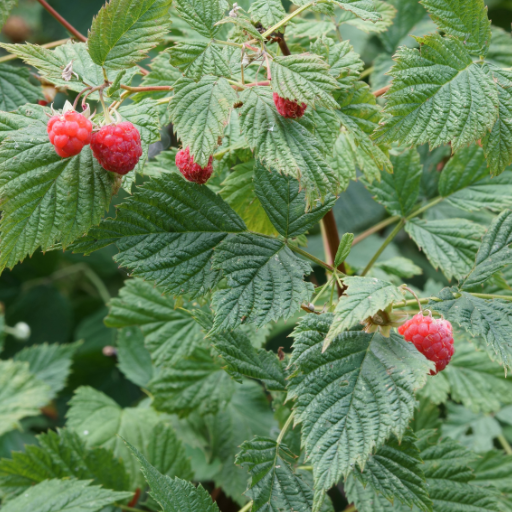
Yes, there is the possibility that chicken droppings can be used effectively on raspberry plants. Composted chicken manure provides important nutrients such as potassium, nitrogen and phosphorus, which are needed for the growth of raspberry plants. Improvement of soil structure, increased moisture retention, and promotion of healthy root development (N) characterize it. Nevertheless, it is crucial to compost the manure well lest it burn out the raspberry crops. Approximately one or two inches thick layer of composted chicken manure around the base of these plants and its incorporation into few upper inches will lead to significant nutritional benefits. It maintains balanced nutrient levels and promotes a healthy plant through regular monitoring and soil testing.
How to apply chicken manure to raspberries
To apply Chicken Manure effectively, follow these steps:
1 Preparation: Ensure that the chicken dung is completely composed. This fresh dung may be too rich in ammonia content thereby burning your crops.
2 Application Rate: Put about a 1-2 inch layer of composted chicken manure around the base of your raspberries.
3 Integration Depth: Lightly blend in some composted cow manure with the top four to six inches of soil to improve nutrient uptake and reduce the chances of root burning.
4 Application Timing: Add it in early spring before new growth starts or late fall after harvest so that nutrients can be absorbed into the soil.
5 Avoiding Over-application: Do not go overboard beyond what has been recommended since this would imbalance nutrient ratios, causing crop stressors, among other issues.
Important Considerations
- Soil Testing: Regularly conduct a soil test to monitor nutrient levels and adjust application rates accordingly.
- Moisture Management: Consistent soil moisture should be maintained after application especially for adequate absorption of nutrients necessary for growth but also to minimize plant stresses
Again, they are aligned with organic cultivation best practices for raspberries to ensure good plant health and fruit development.
Benefits of Using Composted Chicken Manure on Raspberries
Composted chicken manure is a great organic fertilizer for raspberries because it has a high nutrient content and helps improve soil fertility. The main advantages are:
- Nutrient-Rich Composition: Composted chicken manure exhibits its richness in vital nutrients like nitrogen (N), phosphorus (P), and potassium (K). These are essential elements for raspberry plants’ growth, development, and fruit formation. According to the University of Minnesota Extension Center, composted poultry manure usually contains roughly a 1.1-0.8-0.5 N-P-K ratio.
- Improved Soil Structure: Organic matter contained in composted chicken manure enhances soil structure by increasing its water-holding capacity and aeration; this creates room for root penetration and microbial activity, which are important aspects of healthy raspberry plants.
- Microbial Activity Boost: Adding composted chicken manure to the soil increases microbial diversity which plays a key role in nutrient cycling as well as disease suppression. Research from the Rodale Institute shows that the organic matter in chicken droppings supports beneficial microorganisms found in soils, thus enhancing overall soil quality.
- Enhanced Soil Fertility: The consistent application of composted chicken manure can gradually improve soil fertility over time. This results from nutrients’ slow release during decomposition, ensuring a steady supply to plants over an extended period of time. Clemson Cooperative Extension reports that the gradual nutrient release helps maintain stable growth and reduces the risk of nutrient leaching.
Major problems when using chicken manure on raspberries.
- Too Much Nitrogen: High nitrogen levels in chicken manure may cause over-fertilization, resulting in exuberant vegetative growth at the expense of fruit production. This is seen through excessively healthy green leaves and diminishing flowers. To avoid this, manure should be applied in the right quantities, and soil testing should be undertaken to track nutrient levels. The University of Georgia Extension recommends a soil test kit to determine current nitrogen levels and adjust the application rate accordingly.
- Accumulation of Salt: Composted chicken manure can lead to salt build-up in soils because it contains relatively high amounts of salt compared to other organic fertilizers. The plants may not take up water properly due to these salts, resulting in leaf scorching, wilting, and stunted growths, among other symptoms. Regular soil sampling can help manage salinity, while gypsum or other soil amendments could also be considered to mitigate salts’ impact on raspberry plants. Colorado State University Extension advises applying 1000 – 2000 pounds of gypsum per acre if they want to lower their soil salinity.
- Risk from Pathogens: While composting usually lowers the number of harmful diseases, improperly composted chicken manure might still contain pathogens that can damage raspberry plants. It is important to ensure proper composting methods such as having temperatures maintained at between 130-150°F as recommended by the Environmental Protection Agency (EPA) for a minimum period of three days so as to minimize pathogen presence in composts derived from poultry droppings. Monitoring temperature changes and stirring your mound frequently will enable you kill all necessary pathogens required for this process.
What Nutrients Does Chicken Manure Provide and Why Are They Important?
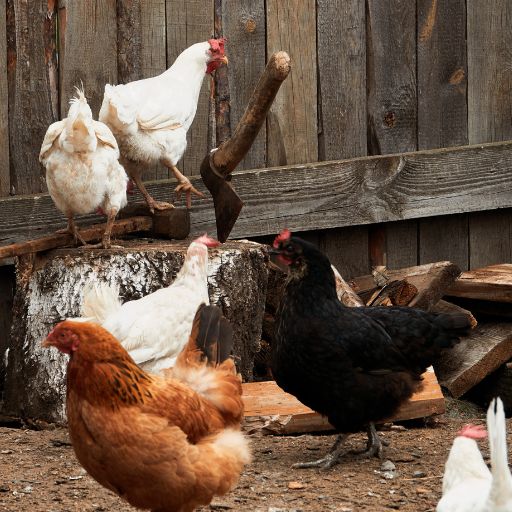
Chicken droppings are a highly advantageous organic form of fertilizer because they contain a few important nutrients that plants need to grow. Firstly, high nitrogen levels stimulate vegetative growth and leaf production. Chlorophyll, which initiates photosynthesis, needs nitrogen as one of its basic components. Secondly, chicken waste produces phosphorous that helps in root development, flowering and fruiting. Phosphorus facilitates energy transfer and photosynthesis within the plant cells. Lastly, potassium is an essential ingredient found in chicken manure that helps plants fight diseases, maintain favorable water balance and activate enzymes in the plants’ systems. The primary elements necessary for soil fertility enhancement, making crops resistant to various problems, and maximizing farm output are these constituents, among others.
Understanding the NPK ratio in chicken manure
The NPK ratio, or rather N:P:K, stands for Nitrogen (N), Phosphorus (P), and Potassium (K), is an important indicator of how much of these key nutrients are contained in chicken manure. A typical range of 1.1-0.8-0.5 for fresh chicken manure. They indicate every 100 pounds contain approximately 1.1%nitrogen 0.8%phosphorus and 0.5% potassium. However, composted chicken manure could have NPK values like 3-2-2, indicating higher nutrient concentration due to decomposition processes with reduced water content and increased Organic Matter stability.
Technical Parameters to Consider Include:
1 Dry vs. Fresh Manure: Manure from broilers often has a higher moisture content, thus affecting nutrient concentration.Composting can reduce water content by more than 25%, thus increasing nutrient density.
2 Moisture Content: Typically, fresh dung contains between 60% and 80% water, which matters when calculating effective nutrient ratios based on dry weight.
3 Mineral Availability: Nitrogen may have as much as 50% available in the first year of application, while phosphorus and potassium are more slowly available over time due to their relatively stable mineral forms.
Routine analysis should be done to ascertain the specific NPK ratio of the manure being used, as these values can change due to many factors, such as feeds and farmers’ handling of manure.
The role of nitrogen, phosphorus, and potassium in plant growth
Nitrogen is important for plants because it helps form amino acids, which are proteins’ building blocks and make up chlorophyll needed for photosynthesis. Phosphorous helps transfer energy within plants since ATP (Adenosine Triphosphate) is required for this process. Nitrogen content in chicken droppings is often very high, about 1.1%, thus making them ideal sources for green leafy vegetables. Potassium helps with enzyme activation, osmoregulation and general well-being of the plant by enhancing disease resistance and water uptake efficiency leading to better photosynthetic rate. Physiological functions supported by different nutrient categories ensure optimum crop development as all these constituents present must appear approximately balanced.
How to balance organic fertilizers to prevent over-fertilization
Preventing over-fertilization with organic fertilizers requires an approach around soil testing, correct dosage application and understanding how nutrients are released from organic materials. Soil testing regularly guides in knowing actual levels of nutrients, which helps them decide on what fertilizer will go where rather than adding too many nutrients in a single place. This prevents build-up of excessive quantities of nutrients or other toxic substances inside soil profiles-.
Following application rates based on soil test results and crop nutrient requirements is important. For example, the rate of composted manure will depend on how much nitrogen can be applied without going over phosphorus or potassium levels. Composted manure generally should be applied at a rate of 1-2 tons/acre but this may vary depending on the nutrient contents of these and other factors present in the soil.
Moreover, it is equally important to understand the release patterns of nutrients in organic fertilizers. Organic fertilizers usually decompose slowly; hence, their nutrients are hardly leached into water, thus enabling a sustained nutrient supply. For instance, during the first growing season, about 30-50% of nitrogen is released from organic matter, while the remaining portion keeps releasing with every subsequent season. Therefore, unlike synthetic fertilizers, organic fertilizers have a slow-release mechanism that makes them less prone to causing nutrient imbalances.
Use cover crops and rotations that naturally replenish soil fertility for proper fertilizer balance. Fixing legume cover crops can reduce the atmospheric nitrogen level, reducing the fertilizer inputs required. Furthermore, rotating crops with different nutritional needs helps prevent the depletion of certain nutrients and promotes a well-balanced soil ecosystem.
To sum up; frequent testing for soil types should be done; specific application rates need to be used which vary according to soils type and crop requirements; one should know how fast different organic materials will release their nutrients, as well as support simultaneous biological activities that provide balanced nutrition for plants when it comes to preventing eutrophication by use of bio organic-mineral fertilization approach
How to Incorporate Chicken Manure in Organic Strawberry and Raspberry Farming?
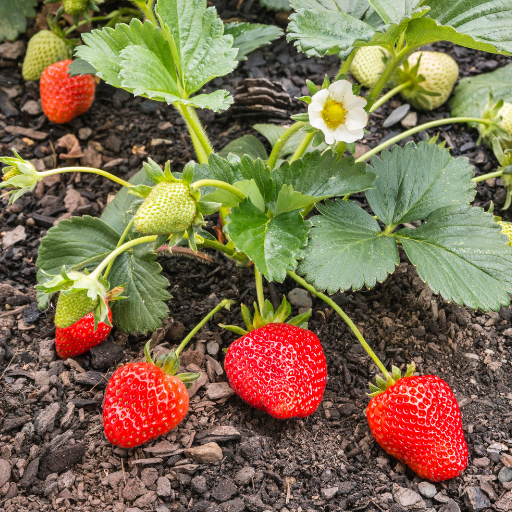
The nutrient profile in chicken manure makes it a highly effective fertilizer for organic strawberry and raspberry farming. To make sure that you use chicken manure properly, first, ensure that it is fully composted to kill all pathogens and reduce its ammonia levels, which can damage plants. Composted chicken manure should be applied at 1-2 tons per acre, adjusted using the soil test results according to the specific nutrient requirement. The best time to incorporate the manure into the soil is fall, thus allowing nutrients to stabilize and be more readily available for spring planting. In addition, drip irrigation helps deliver nutrients directly to plant roots while conserving soil moisture.
To maintain optimal nutrient levels for strong strawberry and raspberry growth, monitor soil health regularly and adjust manure application when necessary.
Organic practices for using chicken manure in the garden
Using chicken manure in an organic garden involves adhering to some principles to enhance soil fertility and plant productivity. First, completely decompose or rather decay the chicken manures so as not allow any pathogen hazard or else high ammonia concentration. Composting usually involves maintenance of a temperature range of 130°F – 150°F over several weeks, ensuring that all pathogens are destroyed. Therefore, after composting, approximately 1.5-2 tons per acre or about 4-6 pounds /100 square feet should be taken when incorporating this amount into your land.
Some technical details through which farmers are advised on how they should apply their poultry litter include its nutrient content, which generally averages nitrogen (N) (1.1%), phosphorus (P) (0.8%), and potassium (K) (0.5%). These elements support different crop growth phases, from the vegetative stage to flowering and fruiting periods. It is, therefore, better if this animal waste is mixed with soil, especially in autumn, to allow the nutrients to become mineralized by spring planting. Soil testing must be carried out periodically to verify nutrient availability and adjust accordingly. Moreover, drip system is good for homogeneously spreading nutrients and holding soil moisture at its best state.
In summary, thorough composting, correct application rates, careful monitoring of soil health, and strategic timing of manure incorporation are key practices for using chicken manure in gardens to maximize nutrient availability while minimizing plant stress.
Advantages of using organic fertilizer for growing strawberries and raspberries
Organic fertilizers used in strawberry and raspberry farming offer numerous advantages that greatly improve yields and plant health. These include improving soil structure through increased organic matter content, encouraging beneficial microbial activity, and raising the soil’s ability to retain water. This will create an optimal root environment for enhanced disease resistance and vigorous growth.
The nutrient release in organic fertilizers is more gradual than that in synthetic fertilizers, ensuring a steady supply that coincides with plants’ growth cycles and reducing the chances of nutrients washing away into the environment. For example, most organic fertilizers contain micro-elements like magnesium, calcium, and iron, which are vital in strawberry and raspberry development.
Technical parameters include the typical nutrient composition of common organic fertilizers. For instance, composted chicken manure generally contains 1.1% nitrogen (N), 0.8% phosphorus (P), and 0.5% potassium (K). On an optimal basis, nitrate-N (NO3-N) should be maintained at around 80-100 pounds per acre yearly while available P2O5 shall range between 20-30 pounds per acre or K2O within 40-60 pounds per acre depending on the types of crop, such as strawberry or raspberry. Therefore it is possible to conduct regular soil tests so that exact amounts may be applied just enough pH’s will not cause any deficiency or excesses due to variation in soil.
Placing organic manure in the soil during spring or at planting makes nutrients available when plants are hungry. Besides this, applying efficient irrigation methods such as drip irrigation will ensure that the moisture content in the soil remains uniform, leading to healthy growth and quality fruits.
Reference sources
- Homes & Gardens
- Source: How to Fertilize Raspberries – For a Bumper Crop Year-After-Year
- Summary: This article provides comprehensive guidance on fertilizing raspberries, recommending compost and well-rotted manure, including chicken manure pellets, as ideal organic options to enhance soil fertility and ensure robust raspberry growth.
- Fryd
- Source: Fertilizing Strawberries: Home Remedies & Natural Fertilizers
- Summary: This source discusses the benefits of using chicken manure for strawberries, noting its high nitrogen content which supports vigorous plant growth. The article emphasizes the importance of using aged or composted manure to avoid damaging the plants.
- Strawberry Plants
- Source: 4 Secrets to Growing Loads of Organic Strawberries
- Summary: Here, the use of chicken manure is outlined as an excellent organic fertilizer for strawberries, provided it is well-composted. The article highlights the potency of fresh manure and stresses the necessity of proper composting to prevent plant damage.
Frequently Asked Questions (FAQs)
Q: Is chicken manure good fertilizer for strawberries and raspberries?
A: Yes, chicken manure is a good option for strawberries and raspberries as it is high in nitrogen, which is essential for plant growth. However, it is important to use composted chicken manure to avoid harming your plants.
Q: How does chicken manure compare to other types of manure like cow or horse manure?
A: Chicken manure is higher in nitrogen than cow and horse manure, making it a potent garden fertilizer. However, cow manure and horse manure are also good options as they can provide more balanced nutrients over time.
Q: Can chicken manure be used directly on strawberry and raspberry plants?
A: It is not recommended to use fresh chicken manure directly on plants because it can harm your plants due to its high nitrogen content. Using dried manure or composted chicken droppings is safer and won’t harm your plants.
Q: Should I mix chicken manure with other fertilizers like bone meal or tomato fertilizer?
A: Combining chicken manure with other fertilizers like bone meal or tomato fertilizer can provide a balanced fertilizer effect, giving your plants a wider range of nutrients to promote their growth and health.
Q: How often should I apply chicken manure to strawberry and raspberry plants?
A: It is important to use chicken manure sparingly. You can apply composted chicken manure in the early spring and possibly again after the harvest. Over-application can lead to excessive nitrogen which can harm your plants.
Q: Does chicken manure contain weed seeds that might affect my garden?
A: Properly composted chicken manure should not contain viable weed seeds. If the manure is not properly composted, it might introduce weed seeds into your garden, so it’s important to ensure composting is done correctly.
Q: Is liquid manure or dried manure better for fertilizing strawberries and raspberries?
A: Both liquid manure and dried manure have their benefits. Liquid manure can provide immediate nutrients to your plants, while dried manure serves as a slow-release fertilizer, ensuring a steady supply of nutrients over time.
Q: Can using chicken manure improve leaf growth of strawberry and raspberry plants?
A: Yes, because chicken manure is high in nitrogen, it is particularly effective for promoting leaf growth in strawberry and raspberry plants, making it a valuable plant fertilizer.
Q: Is chicken manure suitable for all strawberry varieties?
A: Chicken manure can be used for all strawberry varieties. However, it’s always a good idea to test the soil and adjust the application rate to ensure optimal growth for specific varieties.
Q: Can I use coffee grounds or other organic matter along with chicken manure?
A: Adding coffee grounds or other organic matter along with chicken manure can provide your plants with additional nutrients and help improve soil structure, ensuring your plants are healthy and well-nourished.






